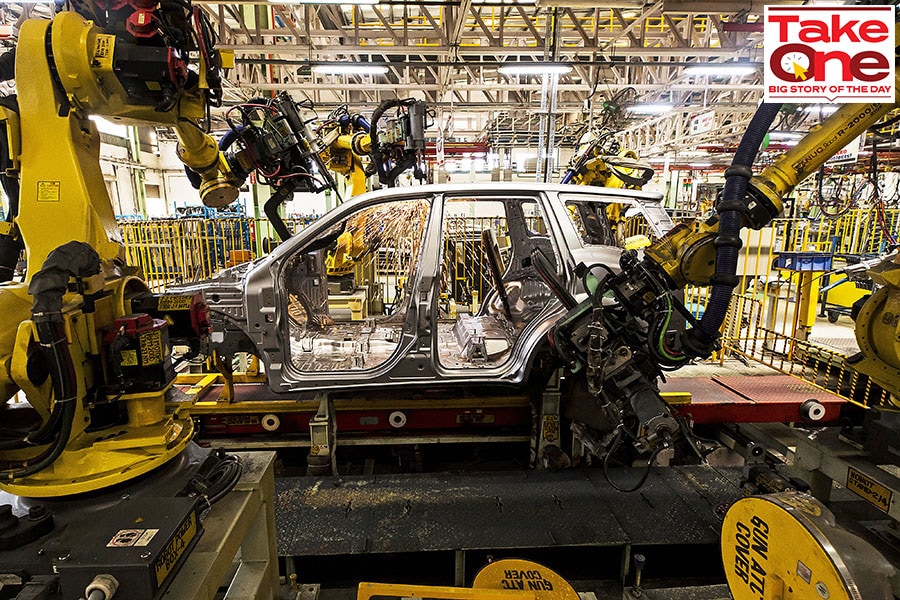
Not just Tata Motors, Mahindra too has now built India's most valuable electric vehicle company
With an investment of Rs 1,925 crore from British International Investment, M&M's EV business valued at $9.1 billion—on par with Tata Motors' EV business
 Robotic arms on the production line at the Mahindra & Mahindra Ltd's facility in Chakan, Maharashtra
Image: Udit Kulshrestha/Bloomberg via Getty Images
Robotic arms on the production line at the Mahindra & Mahindra Ltd's facility in Chakan, Maharashtra
Image: Udit Kulshrestha/Bloomberg via Getty Images
It’s been a phenomenal two years for Mahindra. And there seems to be no stopping the Mumbai-based carmaker.
It all started with the launch of the second generation Mahindra Thar—the first was introduced in 2010—in October 2020. The Thar, an iconic off-road SUV, was launched with a revamped and rugged design, the latest infotainment options, an automatic gearbox to target the urban clientele, and a refreshed engine, among a slew of changes in Mahindra’s attempt to reclaim its losing turf in the domestic automobile market. Even today, the vehicle has a waiting period of up to 12 months despite selling 3,000 units a month.
Then, a year later, Mahindra brought in its flagship model, the XUV 700, among the best-selling cars in India today, clocking bookings of over 10,000 units a month. The waiting period for the car now extends to over a year and a half, and despite that, the company continues to receive fresh bookings.
Then, even as it faces serious production constraints, as part of its renewed focus on building what the company calls authentic SUVs, the company launched the third generation of the Mahindra Scorpio in June this year. The new Scorpio is a deviation from its previous self, mostly retaining just the name, with the vehicle undergoing a significant transition.
Today, Mahindra has over 143,000 open bookings across its models, the Mahindra Thar, XUV 700, Bolero, and the XUV 300. “By picking on our capability and competence, we want to attract consumers who are looking at multiple other segments,” Rajesh Jejurikar, the executive director for the auto and farm sectors told Forbes India in a detailed interaction last year. “You can be a specialised position brand and still get volumes. To win in the SUV battle, you don’t have to make a product that’s similar to what somebody else is making. Because that’s what works for them. We must focus on our strengths. And that’s exactly the tweaking that we’ve done.”








